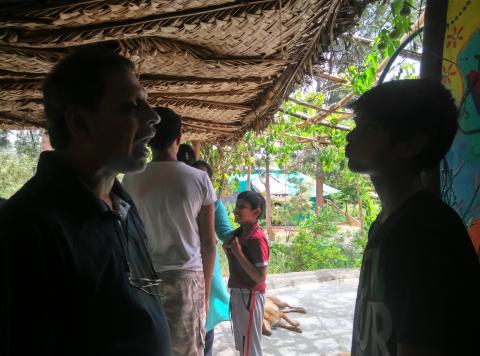
Do you listen from your children “why me?” Why are you only telling me? You hate me? You always think I am bad?
The job a facilitator is a dynamic job – we flow as the river flows – sometimes serene and calm, sometimes gushing, sometimes waterfall, sometimes playful, sometimes a stream.
During one of the interactions one child expressed ” why do you always tell me only, why only finding faults in me”. I choose to create a space to see him own image about self. The child analyzed his last 64 hours working hours – 2 hrs in discussing with me about some of the codes broken, 6 hrs fighting and complaining about others, 10 hrs thinking about others how they either trouble him or he feels bad about them, 2 hrs in doing work which made him felt achieved, and rest of the hours in other chores like bathing, eating etc. Well, the problem was not that I was discussing for two hours with him (so called finding faults him) but the real problem was in him not feeling nice about self, very lees time spent on self growth and more time spent in contaminating his own mind and body with negative thoughts. He didn’t need external praise, as it was ineffective. He needed self belief “I accept myself the way I am. I am capable, I am good, I am lovable”. The analysis led to realization that enough time is spent in putting down self, while there is very less time spent on self growth, doing and utilizing self gifts. We didn’t clarify more than this.
One child screamed at mother on top of her voice “I know you hate me”. It can be very disturbing to hear such statements. But can we pause and try to understand the various aspects of “hate”? Is the child expressing “I know you think I am no good, I know you think I have not done my work, I know you think I am not learning, I know you think I am wasting my time….?” Does this makes any sense? Is there different ways the child has received these messages? Is the child naming all of them in one word “hate”?
Most often it is not about us, but about the child’s inability to connect with self. All we need to do is to help our kids connect with them – sometimes be listening wall, sometimes reflector and mirror. For us to support our kids may be we need to firstunderstandour own inabilities – somewhere do we feel low about self, do we feelunsatsfied? Where are our anxieties coming from? Once we understand ourselevs, we can support our kids to get hold of themselevs!